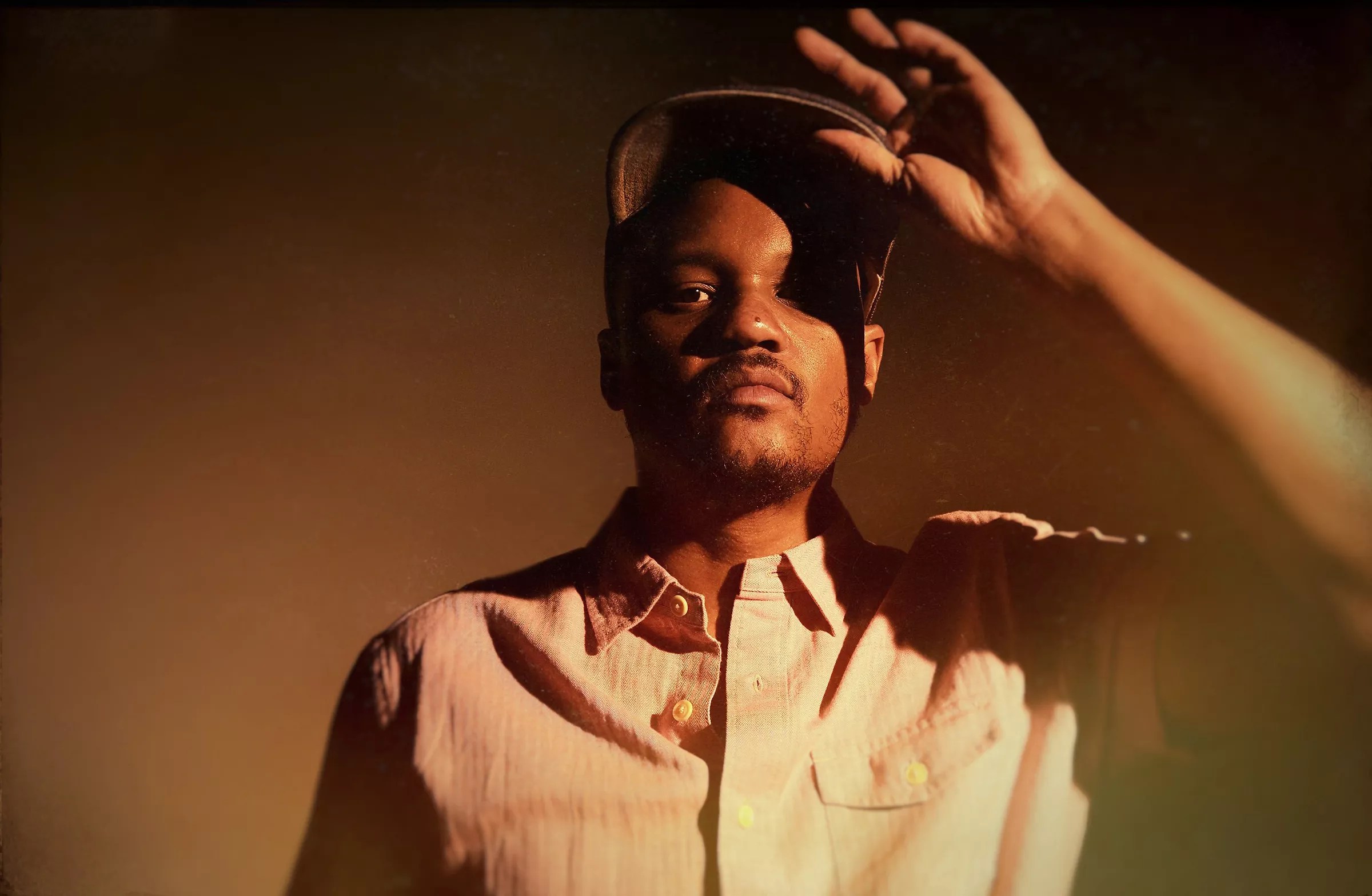
Shervin Lainez

Audio By Carbonatix
It’s an old joke, but there’s some truth to it: What do you call someone who only speaks one language?
An American.
Aaron Livingston, aka nu-soul crooner cum modern bluesman Son Little, is working hard at no longer being the butt of it. By his own account, his French is okay. It helps that he has spent some time in Paris, especially recently while recording his latest EP, invisible, and forthcoming third album, aloha.
“I understand a lot. I’m a little slow speaking, though,” he says. “A lot of people, their English is so good that if you hesitate a little bit, they jump in and speak English. You can’t miss a beat or they start speaking English, and then you’re done.”
Livingston has chosen a particularly challenging city to hone his francophone chops – Parisians have a reputation for being somewhat unforgiving and are notorious among long-suffering study-abroad students for speaking rapidly – but he loves Paris all the same. He’s skipped much of the obligatory touristy activities (“I spend a lot of time there, but I’m always working,” he explains), but enjoys the city and culture all the same. When I ask him what he finds so appealing about it, he chalks it up to je ne sais quoi.
Livingston is far from the first American creative type to seek solace in the City of Light – its famed appeal has seduced everyone from Ernest Hemingway to Carrie Bradshaw, albeit with varying results – and he’s necessarily positioned within a complicated lineage of black American artists in the city. Josephine Baker left the United States for Paris at age nineteen and remained until her death at 69. Freed from horrifying racist cops and the creeping specter of McCarthyism, James Baldwin and painter Edward Clark thrived in post-war Paris. Jazz greats Thelonious Monk, Billie Holliday and Louis Armstrong found in the French a receptive audience. Nearly broke and with her career in serious decline, Nina Simone retreated to the 14th arrondisement in the early ’80s, performing in small nightclubs in the Latin Quarter.
“Nina maybe had a rough go. But a lot of jazz musicians liked being over there because there’s less pressure,” Livingston says of the lineage. “I definitely feel that for the most part. I’m not afraid of the police, or as afraid of the police.”
Granted, France is hardly a flawless bastion of creativity free from racism or conflict. Posters advertising “Frexit” dot city streets; civil unrest stemming from stagnant wages and rising prices gave rise to the yellow-vest protests that have since dominated headlines. “France has had their own problems with colonial history and a wave of anti-immigration activists. If anything is complicated, it’s being outside their social network. You don’t exactly fit in any of the categories, which I find interesting whenever I am outside the United States,” Livingston says.
Unlike some of his artistic forebears, he hasn’t totally abandoned America for France. he was born in Los Angeles to a preacher father and a teacher mother (“It rhymes, and that’s great,” he notes). His father was an especially trenchant early influence who played clarinet and saxophone (the latter was Livingston’s first instrument) and exposed his son to John Coltrane and the Mahavishnu Orchestra. Livingston spent part of his childhood in New York and ten years in Philadelphia, recently relocating (back) to Los Angeles.
“I always wanted to get back there. I like it,” he says of the move. Adding to L.A.’s appeal after ten years in Philly: “I really was tired of winter.” He now raves about the vibrant music scene and the food – a supermarket-slash-taqueria on Pico Boulevard boasts “the best burrito I’ve had in my entire life.” He’s a pollo guy, if you’re curious.
Anyway, back to Paris, specifically Studio Ferber on the Right Bank, where he recorded invisible, a compact collection of jazzy and jittery nu-soul (wonderfully realized on “about her. again.”) and buzzing, bluesy guitar work (spiraling and shapeshifting on “skid”). He enlisted studio head Renaud Letang to produce both the EP and aloha.
Ceding a modicum of control to Letang was no minor decision. Although Livingston’s career prior to Son Little involved playing with the Roots and RJD2, his work since has been notably autonomous, with him writing, recording and producing his self-titled debut LP and 2017 followup, New Magic, himself.
“I was experimenting on myself, in a way. It’s hard when you’re used to doing everything to let someone else steer a bit,” he says. “But [Letang and I] were very much on the same page. He was there to help me get out of my own way, I’d say.”
Livingston recorded the initial aloha demos alone in a house in Petaluma, California, only for all of it to evaporate when the hard drive fried. Relatively undeterred, he rewrote the record in eight days and, as he is wont to do lately, returned to Paris. It’s set to arrive January 31 on Anti- Records. But wait, there’s more: Livingston is not only writing new music, he’s doing so faster than he can record it.
“I always have tons of stuff, and you can’t release everything, which is something that I’ve slowly accepted,” he says with a laugh. “You’ve got to keep some for yourself. I’d like to find a way to get a bit more out, but I do my best.”
Son Little plays at 8 p.m. Sunday, November 17, at Swallow Hill Music. Tickets are $25 to $27 and available at swallowhillmusic.org.
Hear Son Little and more favorites from Westword writers on our Westword Staff Picks playlist.